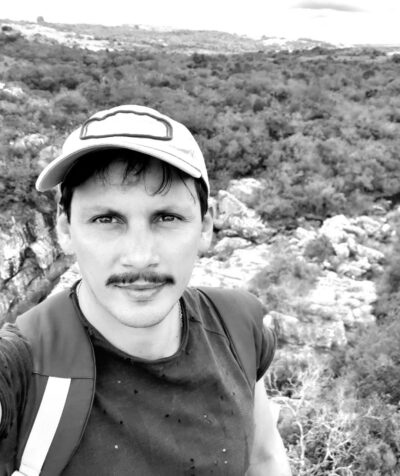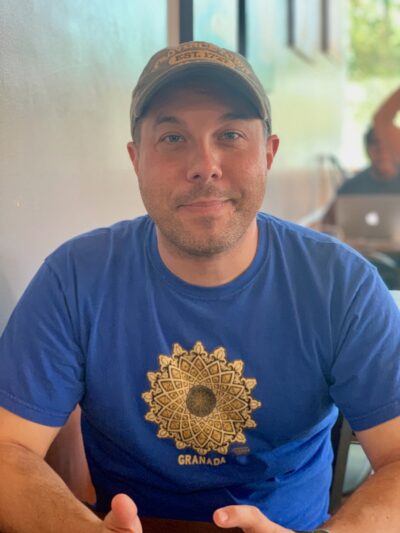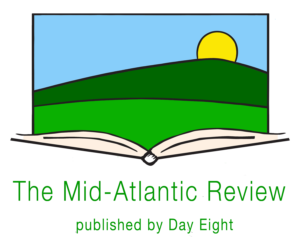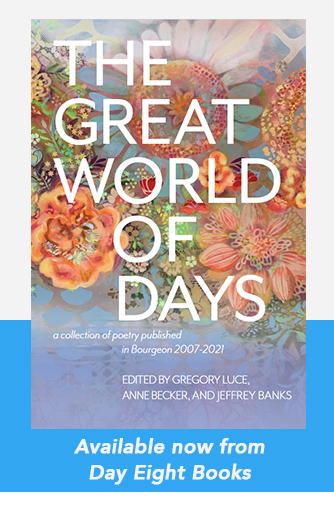Insomne
Azules sueños cruzan la habitación a oscuras
formando el rostro de las noches
en un cielo de humedad.
Alimenta el viento
la voz del aguacero,
surca mis oídos y enardece
la tenacidad de mis ideas.
Pretendo buscar
un cegador momento
o punto ciego
en que no acosen más estas paredes,
en que no apunten más estas ventanas,
como si fuera posible
guarecerse de esa sombra
y nunca te enteraras
cuánto me acompañas.
Insomniac
Blue dreams cross the room in the dark
forming the face of the nights
in a humid sky.
The wind feeds
the voice of the rain,
it surges through my ears and inflames
the tenacity of my ideas.
I intend to search for
a blinding moment
or a blind spot
where these walls no longer harass
where these windows no longer point
as if it were possible
to shelter from that shadow
and you never will find out
how much you accompany me.
La Puerta
“Los de dentro non les querien tornar palabra,” Cantar del Cid
Despego mis persianas
desde el colchón
de antiguas fornicaciones,
el pestillo manoseado
por las manos idas.
No hay noche anterior.
Eco de mi voz llamando,
eco del silencio respondiendo,
pero ninguna niña
se acercará con instrucciones.
Observar acurrucado...
(toda sonrisa es un umbral)
desterrándome a mí mismo.
Atrás,
muy atrás quedan
miedos y demonios
y mis peores fotografías
en el placar.
The Door
"Those inside do not want to make a word," Cantar del Cid
I take off my blinds
from the mattress
of ancient fornications,
the groped latch
by the vanished hands.
There is no previous night.
Echo of my voice calling,
echo of silence responding,
but no girl
will approach with instructions.
Observe curled up ...
(every smile is a threshold)
banishing myself.
Behind,
far behind
fears and demons
and my worst pictures
in the closet.
Terminal
Al oeste de las escaleras, donde yace la tumba marítima
o un libro que no se termina de albergar nunca,
veremos la alfombra pisada por el lautarino,
por el raptor de una chica que debió́ llamarse Dolores;
españoles de una España, ahora, carabelas blancas, que
coparon la mansión deshabitada entrando por la noche
a través de las ventanas mal cerradas,
manchadas heridas escarbadas, vidrios que sudan sangrantes,
paredes peladas por dentro, por fuera arropadas
como el cuerpo tiritante de un sonámbulo, de un loco que resiste
por los temblores de la casa, latido incesante de las lámparas
corazón erguido y hervido como un sexo,
mampara de sol infatigable tras las cortinas,
rojas cortinas de fuego inconmensurable, terco, creador y frío fuego,
fuego para apagar el agua, agua para prender el fuego,
iluminación instantánea de un paraíso, de un rojo prado
sin locus amoenus, sin infierno prometido, ni del héroe los mitemas,
con tuberías donde circula la sangre enrojeciendo los sitios por donde pasa,
dejando cada pieza en cuarentena y empantanando
el virus en las escalinatas
como un azote de infierno a invierno
como una azotea imposible por la noche coronada.
Terminal
West of the stairs, where the maritime tomb lies
or a book that is never finished,
we will see the carpet stepped on by the lautarino,
by the kidnapper of a girl who must have been named Dolores;
Spaniards of a Spain, now, white caravels, that
took over the uninhabited mansion at night
through the poorly closed windows,
stained scraped wounds, bleeding glass,
walls peeled inside, covered outside
like the shivering body of a sleepwalker, of a madman who resists
the tremors of the house, the incessant beat of the lamps
heart erect and boiled like sex,
sunscreen behind the curtains,
red curtains of immeasurable fire, stubborn, creative and cold fire,
fire to put out the water, water to light the fire,
instantaneous illumination of a paradise, of a red meadow
without locus, without the promised hell, nor the hero's myths,
with pipes where blood circulates reddening the places where it passes,
leaving each piece in quarantine and bogging down
the virus on the steps
like a scourge from hell to winter
like an impossible rooftop at night crowned.

Miguel Avero is a narrator, essayist, teacher and researcher. He directs the “Puerta Chimera” writing workshop, and his work is included in various national and international anthologies, specifically, América Invertida: An Anthology of Emerging Uruguayan Poets (University of New Mexico Press). His recent books include Arca de Aserrín (Ediciones en Blanco), La Pieza (Walkie Talkie Editions), and Haiku Mate (Demiurge Editions). Avero lives in Montevideo, Uruguay.

Jona Colson’s poetry collection, Said Through Glass, won the 2018 Jean Feldman Poetry Prize from the Washington Writers’ Publishing House. He is also the co-editor of This Is What America Looks Like: Poetry and Fiction from D.C., Maryland, and Virginia (2021). He is co-president with Caroline Bock of the Washington Writers’ Publishing House and edits the bi-weekly journal, WWPH Writes. A full-length collection of Miguel Avero’s poems, Aguas/Waters, is forthcoming by WWPH.
Image: “Door in Nature” by V3NOM V1V14N under the Creative Commons Attribution-Share Alike 4.0 International license.


